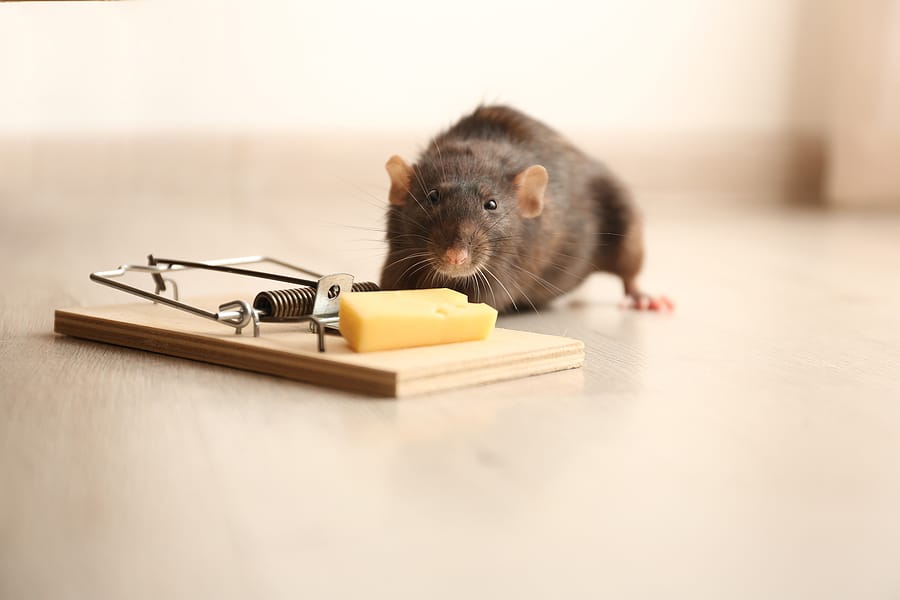READY TO GET STARTED?
REQUEST A FREE ESTIMATE
Fill out the form below or call (888) 466-7849 for a free, no-obligation estimate.

Let’s face it – any rodent infestation is a big deal. Besides the overall yuck factor of finding a rat or mouse in your home, they also carry and spread some serious diseases and can cause significant damage to your home. The most common rats found in or near homes are the Norway rat and the roof rat; the most common species of mouse found homes is the aptly named house mouse. Of these rodent species, which one is worse to have in your home? Let’s explore the rat vs mouse debate and decide.
Norway rats are one of the largest species of rats out there. They can also produce up to 5 litters per year with an average of 7 babies per litter. Reproducing to this extent poses the potential for a devastating infestation in your home. Norway rats are known to carry Weil’s disease, cryptosporidiosis, viral hemorrhagic fever, Q fever, and hantavirus pulmonary syndrome. These rats are highly adaptive, aggressive, and difficult to control.
Roof rats are smaller than their Norway counterparts. They also tend to stay in higher locations than Norway rats such as on top of cabinets, on roofs, in ceilings, etc. Roof rats are known to carry leptospirosis, salmonellosis, rat-bite fever, murine typhus, toxoplasmosis, and trichinosis.
Mice are much smaller than rats. They actually prefer to live indoors and near humans, making your home the ideal environment for them to thrive. House mice breed year round and can have up to 14 babies per litter. What’s even worse is these babies can begin breeding at just 5 weeks old so an infestation can get out of hand very quickly! House mice are known to contaminate food and spread disease. They are not aggressive like rats and pose less of a threat with regards to biting. House mice are the most common house invading rodent and have actually been named to the top 100 world’s worst invaders list.
Now that you know a little bit about rats and mice, which one is worse to have in your home? They both look different from each other, making it easy to identify whether you have a rat problem or a mouse problem. Small traps will work for mice but not for the larger sized rats. Mice are actually afraid of rats because rats are known to kill and/or eat mice. Because of this, you can actually use rat odor to help deter mice. Mice are much smaller so they can access more areas of your home than rats can and are able to move about quite easily. Mice can fit into openings the size of a dime while rats can fit into openings the size of a quarter. Rats are more aggressive, especially when they feel their offspring are threatened.
Both rats and mice carry and spread rodent-borne diseases. Both species are also known to trigger allergies and asthma in humans. They can both contaminate homes with their droppings and urine and both can bring in fleas and ticks that also carry disease. Both rats and mice can also cause damage to homes by chewing through insulation, cardboard, wood, and even electrical wiring leading to a significant risk for fire.
Regardless of which rodent is infesting your home, the potential for damage to your health and your dwelling is real. Keeping rodents out before they have a chance to take over is critical in maintaining control of these pests. Here are some rodent prevention tips you can use in your home.
If you suspect you have an issue with rodents, contact a local pest control company for a thorough evaluation to identify which type of rodent you are dealing with and set you up with a comprehensive rodent control plan.
Snake Repellent: What Works and What Doesn’t
The Traveler’s Guide to Bed Bugs
Categories